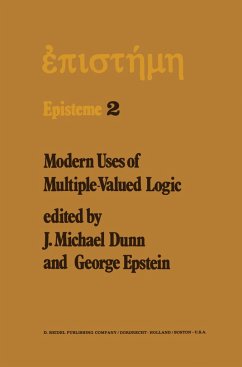
Multiple realizability
Versandkostenfrei!
Versandfertig in 6-10 Tagen
26,99 €
inkl. MwSt.

PAYBACK Punkte
13 °P sammeln!
High Quality Content by WIKIPEDIA articles! Multiple realizability, in philosophy of mind, is the thesis that the same mental property, state, or event can be implemented by different physical properties, states or events. The idea has its roots in the late 1960s and early 1970s when a number of philosophers, most prominently Hilary Putnam and Jerry Fodor, put it forth as an argument against reductionist accounts of the relation between mental and physical kinds. In short, a theory of mind that includes multiple realizability allows for the existence of strong AI. The original targets of these...
High Quality Content by WIKIPEDIA articles! Multiple realizability, in philosophy of mind, is the thesis that the same mental property, state, or event can be implemented by different physical properties, states or events. The idea has its roots in the late 1960s and early 1970s when a number of philosophers, most prominently Hilary Putnam and Jerry Fodor, put it forth as an argument against reductionist accounts of the relation between mental and physical kinds. In short, a theory of mind that includes multiple realizability allows for the existence of strong AI. The original targets of these arguments were the type-identity theory and eliminative materialism. The same arguments from multiple realizability were also used to defend many versions of functionalism, especially Machine state functionalism. In recent years, however, multiple realizability has been used as a weapon to attack the very theory that it was originally designed to defend and, such is the efficacy of the thesis of multiple realizability, functionalism has consequently fallen out of vogue as a dominant theory in the philosophy of mind.












